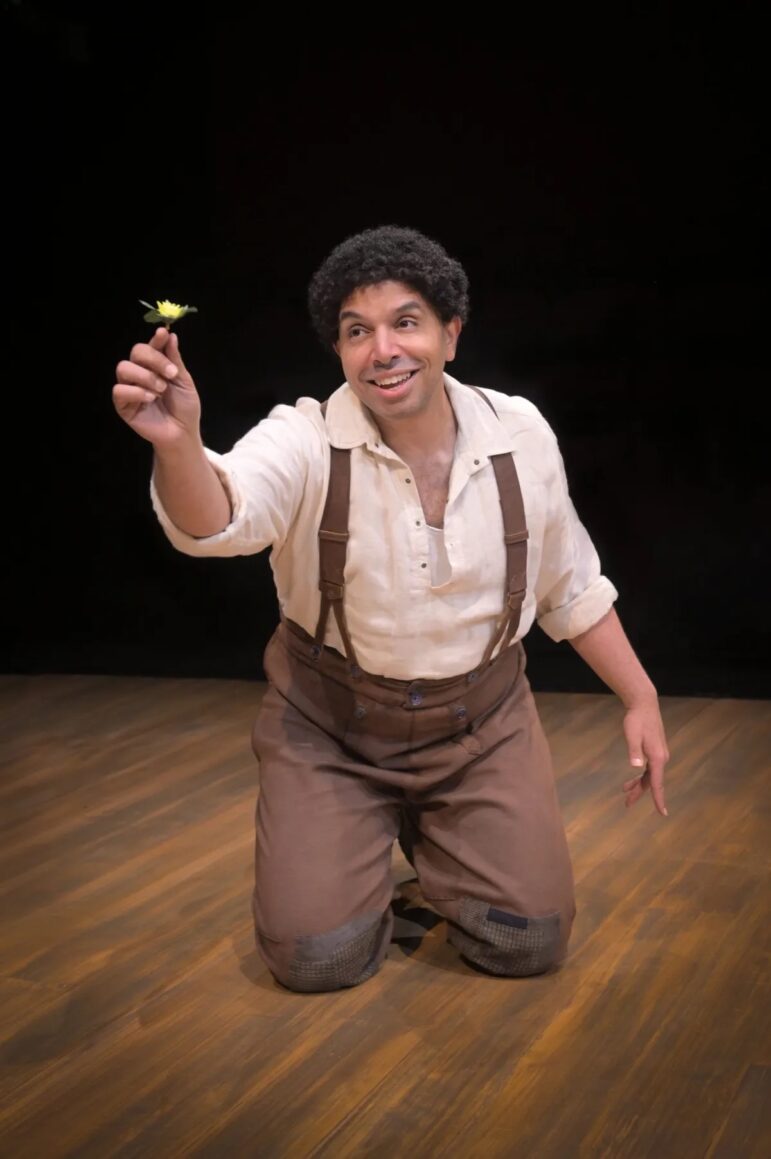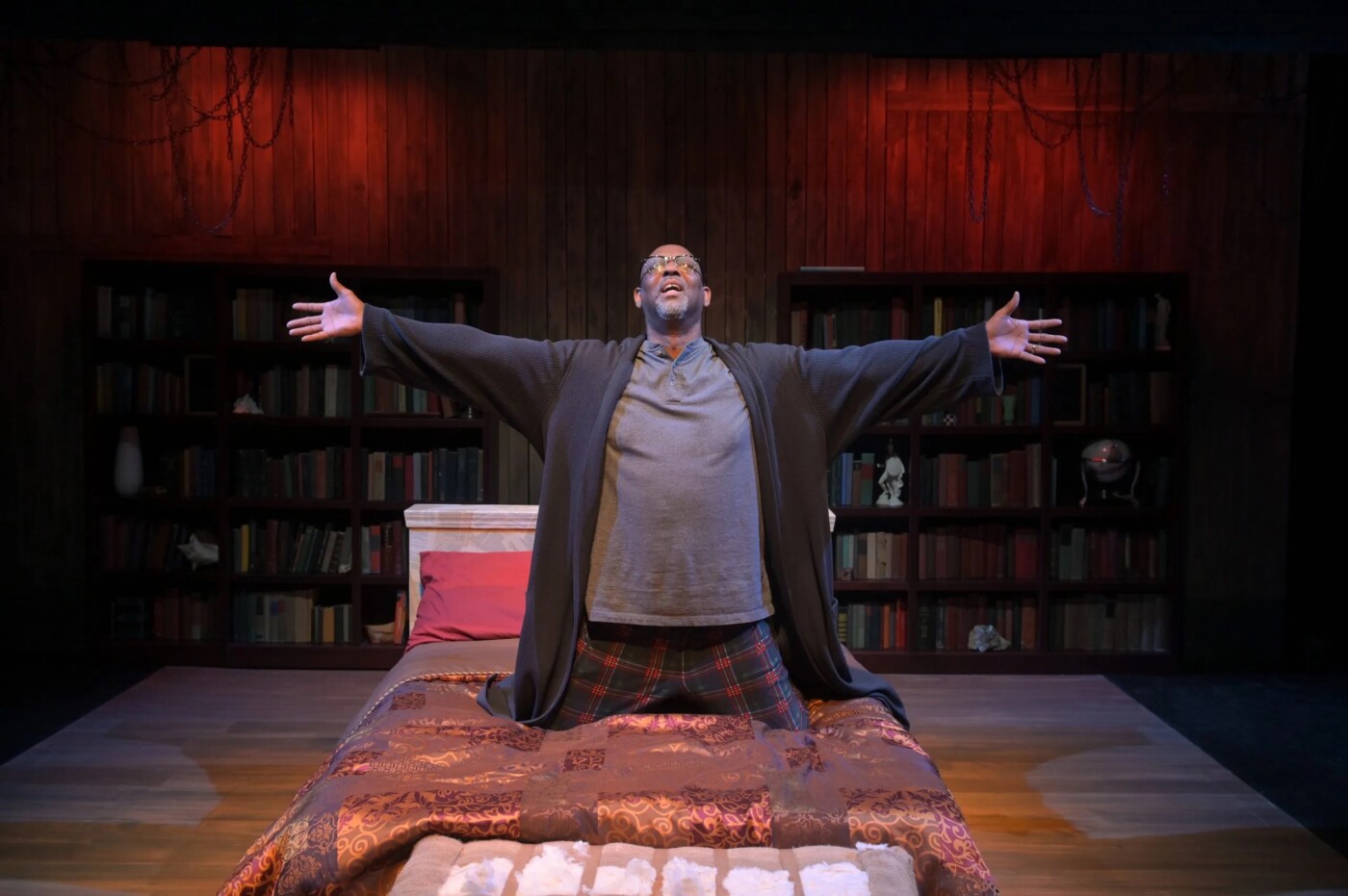Early on in Aurora Theatre Company’s production of Tanya Barfield’s beautiful, wrenching drama “Blue Door,” the protagonist, Lewis (Michael J. Asberry), a Black, bespectacled math professor, explains to us why feng shui is important: “Your house has to be in order,” he says.
His is not.
It’s a lesson he will have to learn over the course of the 90-minute play, which, for him, takes place during one long night of insomnia. In bathrobe and pajamas, he shleps around the house, which is a simple set comprising a bed, bookshelves and a few bales of hay that conjure another time, another place. (The design is by Hector Zavala.)
His white wife of 25 years recently left him, after imploring him in vain to attend the 1995 Million Man March in Washington. She has various complaints about him, including his unwillingness to be out in nature; she says he’s suffering from “tree anxiety.”
He is suffering from more anxiety than she probably realizes—and more than he himself understands.

Lewis’ dark night of the soul begins in earnest when a mysterious figure (played by James Mercer II) appears. He is the first of three ghosts who will visit Lewis this night (all played by Mercer). They are his great grandfather, his grandfather and his brother: a trio, as in Dickens’ “A Christmas Carol,” that will force him to reconnect with his past and face himself.
Along the way, we—and, slowly, he—learn just how inevitably trauma is carried down through the generations. Here, the ghosts of Lewis’ family take us, painfully, through slavery to the present.
Various agonizing scenes stand out. Lewis, in the classroom, in a fury, calling a Black student the n-word; Lewis himself re-enacting a devastating childhood scene in which his drunken father beat him so mercilessly he broke two ribs; and more.
Throughout, the apparitions sing snatches of gospel-like songs (lyrics by Barfield, music by Larry Gillard Jr. and director Darryl V. Jones listed as “composer of original songs”) that are welcome in this talk-heavy short play. The plaintive “I Wanna Go Home,” repeated several times, is devastating, unforgettable.
Asberry, as Lewis, is wonderful: soft-spoken throughout, yet working his way through a whole host of emotions with complete authenticity. It’s a seemingly effortless performance.
In his three roles, Mercer, in a wooly wig and suspenders, fills the stage with antic energy, a nice contrast to the low-key Lewis. And even though he’s expert at changing his voice for various characters, nevertheless his heavy dialect often makes him hard to understand. It doesn’t help that in changing from character to character, he does nothing much more than take a cap on and off. Jones, who directs with great sensitivity, unfortunately assumes that we can easily follow Barfield’s intricate scenario.
As for the titular blue door—Barfield’s writing is so compact, so elegant, that the blue door becomes a symbol that we, the audience, can hang on to, that gives us hope for Lewis and perhaps for the world.
“Blue Door” continues through May 19 at Aurora Theatre Company, 2081 Addison St., Berkeley, and streams May 14-19. Tickets are $20-$65 at (510) 843-4822 or visit www.auroratheatre.org.
